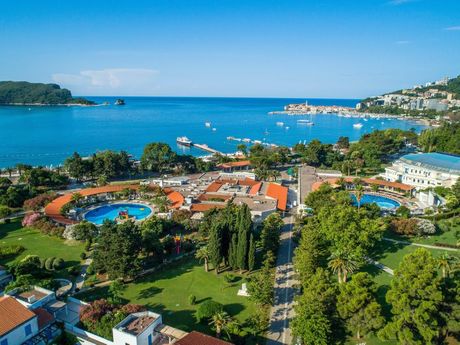Budva is half empty on threshold of peak season: Nothing can replace Russians and Ukrainians?

On the threshold of the peak summer season, Budva cannot boast full occupancy in hotels and private accommodation, writes Vijesti.
And while it was expected that the beginning of July would be marked by columns of cars of people arriving on vacation, instead of visitors asking for extra beds, the Montenegrin "metropolis of tourism," according to official data of the Tourist Organization of Budva, last week saw almost a fifth fewer guests than at the beginning July last year.
In an interview with Vijesti, tourism officials point out that one of the main problems behind the bad season is that Montenegro failed to compensate for the guests from Ukraine and Russia, who were dominant last year, with those from other markets.
There are also fewer guests from the region because some destinations that were closed last year due to the pandemic are now open, so guests from the former Yugoslav republics vacation elsewhere.
According to official data, 26,432 tourists are currently in the area from Jaz to Buljarica, which is 19 percent less than in the same period last year.
Compared to last summer, occupancy rates are lower in hotels and in private accommodation. Thus, according to a Budva Tourism Organization report, there are 11,130 guests in hotels, 15 percent less than at the beginning of July last year.
Occupancy in private accommodation is even lower, even 23 percent less than last year, meaning that 14,478 guests have been registered in this type of accommodation. 236 guests or 71 percent more are in camps, 198 in hotels, i.e., eight percent more, while there are 390 guests in resorts which is a third more compared to last year.
The president of the Budva Hospitality Industry Association, Aleksandar Jovanovic, told Vijesti that in reality there are 40 percent fewer guests, especially in private accommodation.
"Some hotels are well booked, while a good number is half-empty. There are several reasons for this state of affairs. When it comes to Montenegro, we were unable to compensate for the guests from Ukraine and Russia. A bad campaign towards broadcast markets, weak connectivity and problems in the airline industry, since we are an airline destination, inflation in the European Union and the weakening of the euro, an uncertain fall due to military conflicts, are some of the reasons," said Jovanovic.
(Telegraf Biznis)
Video: Premijera filma "Izlet“ reditelja Nenada Pavlovića u Sava Centru
Telegraf.rs zadržava sva prava nad sadržajem. Za preuzimanje sadržaja pogledajte uputstva na stranici Uslovi korišćenja.

